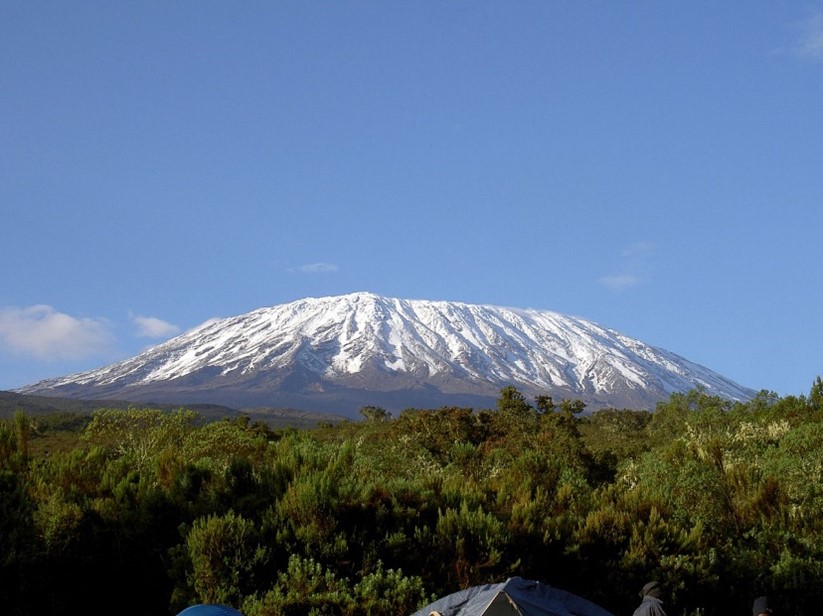"Adventure learning" tour for KIDS and adults in Tanzania.
The aim of the 7-day trip is for the kids and their parents to gain experience, and knowledge about saving the Indian Ocean wildlife by actively participating in a coral conservation project, planting mangrove trees, and swimming with whale sharks.
Dates:
Depending on the number of applications, tours will run continuously between November 2025 and February 2026
Facultative programme: 3-day Safari & Kilimanjaro tour
Location: Tanzania, Mafia Island – Kitu Kiblu Beach Houses and Chole Mjini Treehouses
Meals: breakfast-lunch-dinner
Travel: by plane – Dar es Salaam – Mafia Island


Kitu Kiblu Beach Houses and Chole Mjini Treehouses
The Kitu Kiblu Beach Houses and Chole Mjini Treehouses. The two campsites are located on
different islands, Mafia Island and Chole. The two accommodations are about 30 km apart.
The houses will be located in jungle and baobab trees. The houses are located directly on the beach. It will be comfortable and truly wild as we will be staying with monkeys, toads, birds and other exotic animals.
Pictures – KITU KIBLU Beach Houses


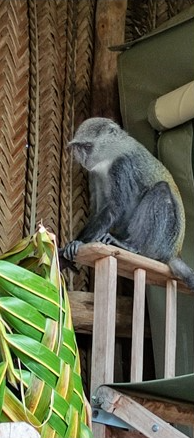
Pictures – CHOLE MJINI Treehouses
Both accommodations operate in the spirit of sustainability.
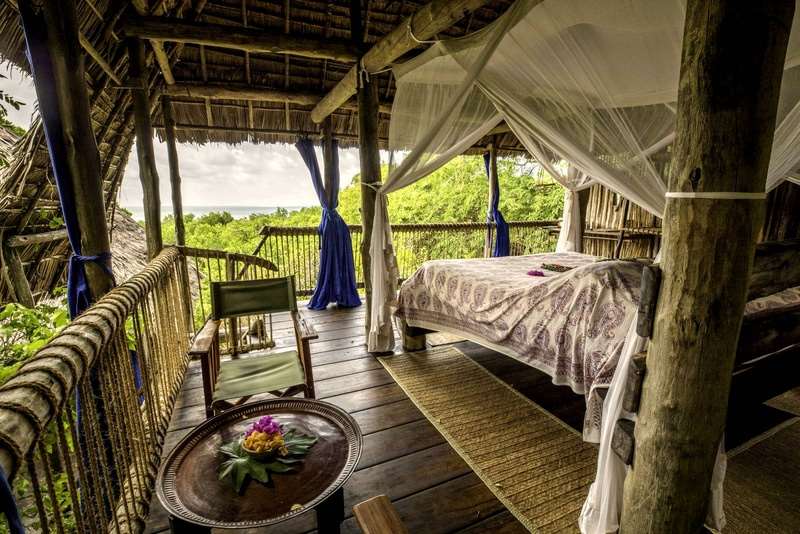
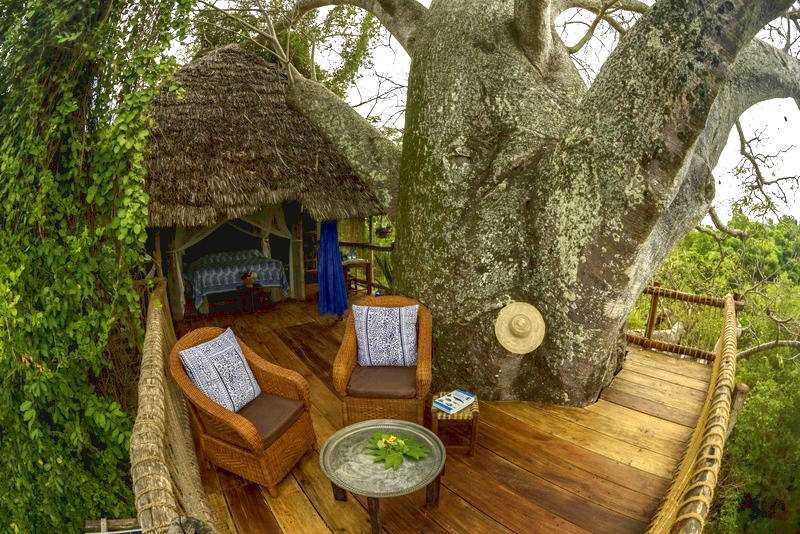
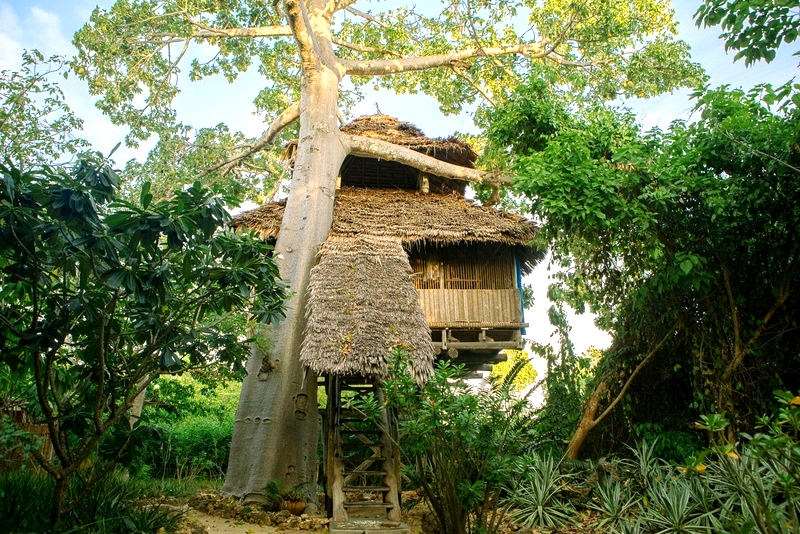
Program
The focus of our trip is environmental protection, including getting to know and protecting marine life. The
local fishermen get food and livelihood by blast fishing. This means that they fish with dynamite, which kills not only the fish they catch, but also all other creatures in the sea.
This way the coral reef is completely destroyed!
coral propagation
On the island, you can join Professor Jean de Villiers’ coral rescue project. The damaged corals are collected by the divers of our team. On the boat, the corals are broken into small pieces and then attached to a rope made of coconut fiber by the local women. Then we take these small pieces of coral to the coral nurseries.
Those who do not dive with a tank are swimming on the surface (with a snorkel), so you can watch the process. Corals are growing in the protected section of the national park until the specialists put them in their final place. This creates new, healthy coral reefs that provide habitat for other marine species.
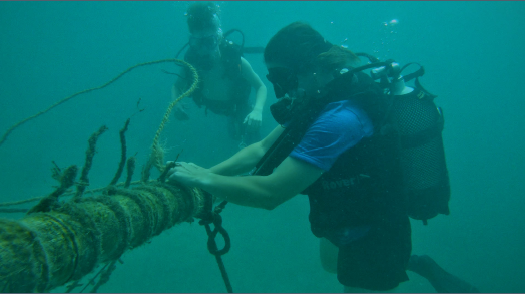
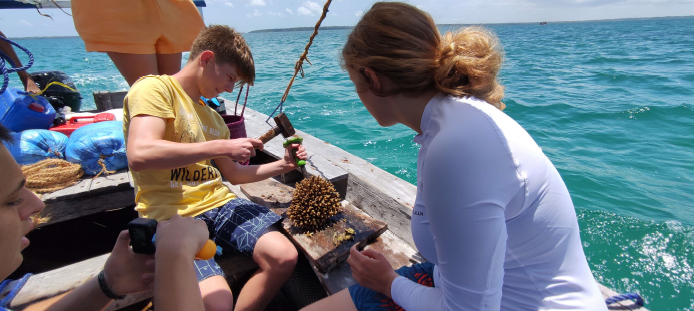
Young people are tasked with planting as many corals as possible. During our stay, Jean will teach the youngsters how to free dive, as the coral nursery is 2-3 meters deep. The youngsters will learn about different reef-building coral species and methods of coral planting.
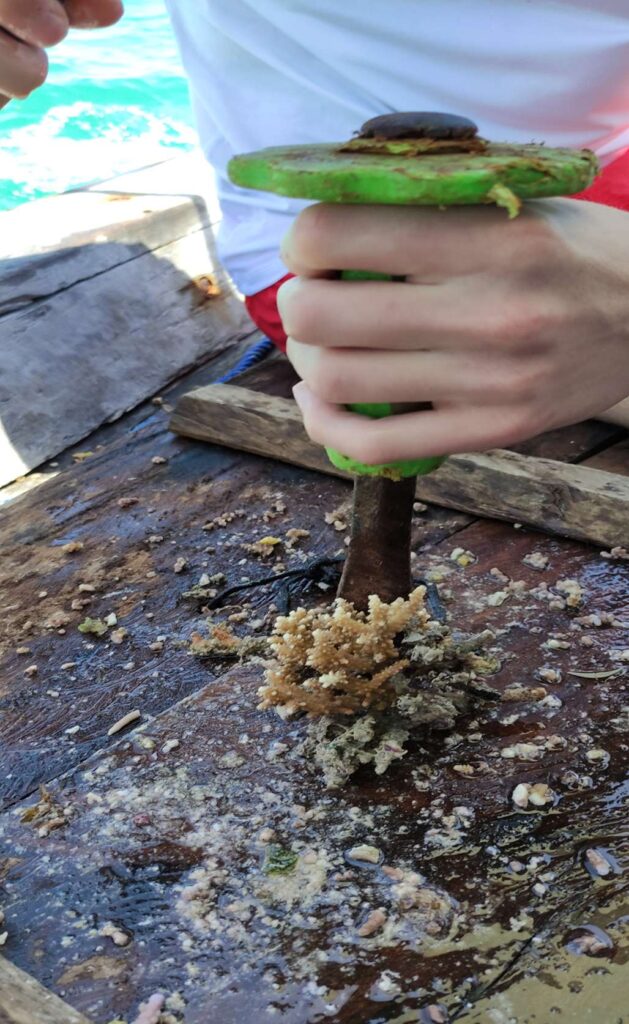
Professional presentations
We want to enrich the knowledge of the young people, so they can listen to a professional lecture by the project’s marine biologists (coral reef ecology, oceanography, mangrove ecology, climate protection)
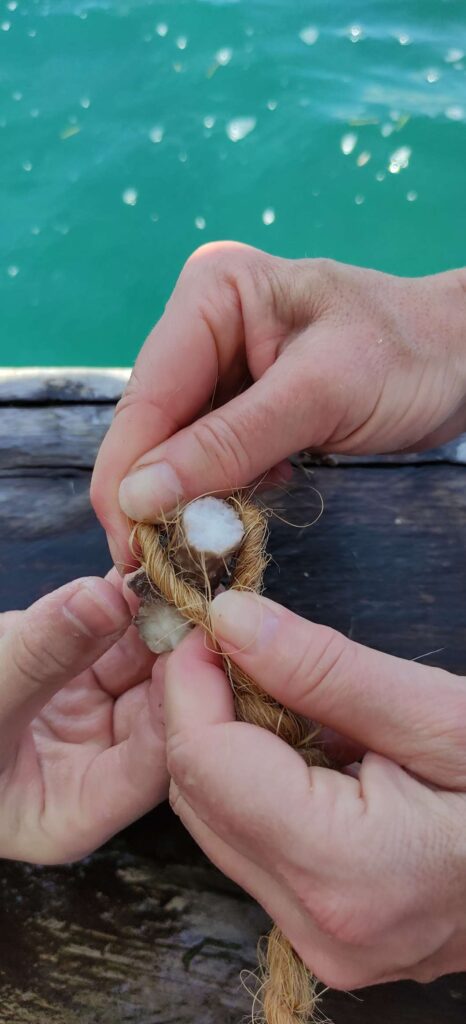
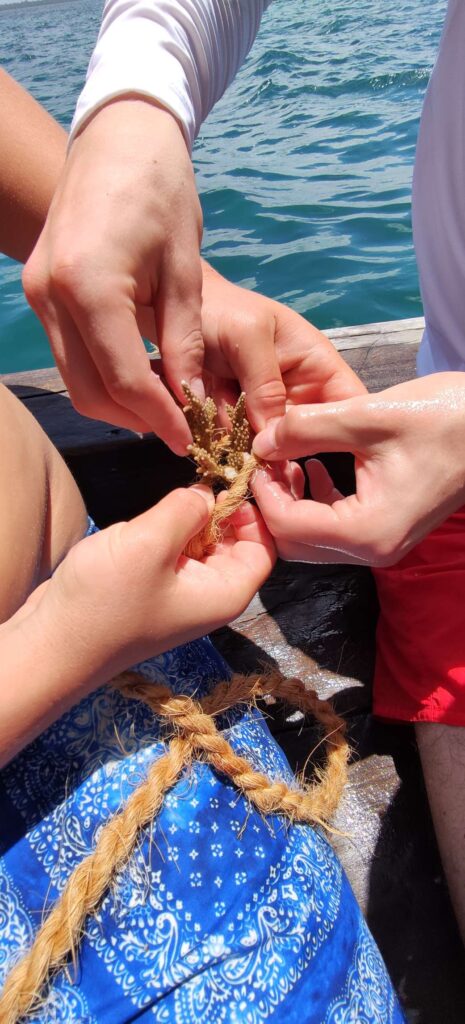
Other activities:
Snorkelling with whalesharks
The whaleshark (Rhincodon typus) is the largest fish in the world, over 20 meters long. Despite their spectacular size, they are very
tame and do not harm humans.
Depending on the migration season, sharks can be seen in the western part of Mafia Island.
You can learn interesting information about their biology and conservation.
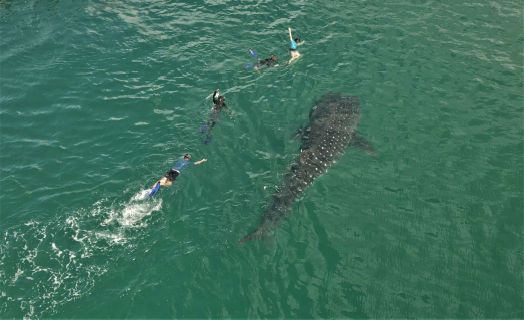

Juani island and Blue lagoon tour
We approach Juani island by sailing a dhow
(classic Arab sailing ship)where hides a small lake, near the “Blue lagoon” bay.
The lake is home to “upside down” jellyfish.
They’re completely harmless – we’ll go with them
to swim in the lake.

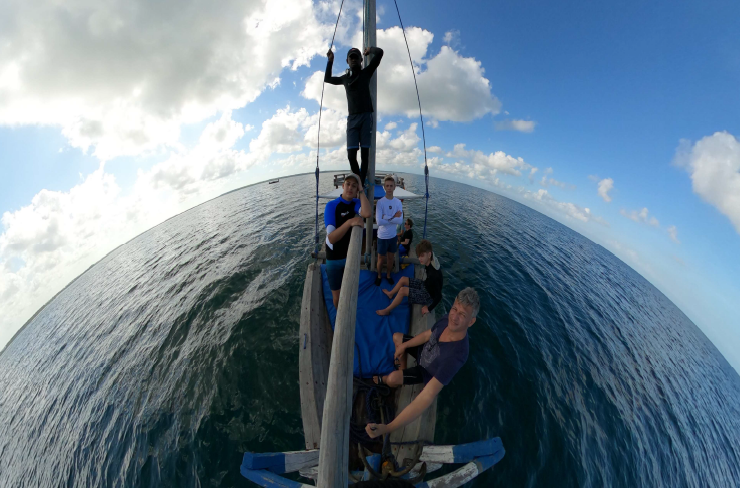
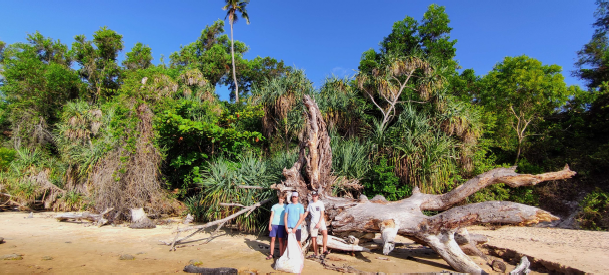
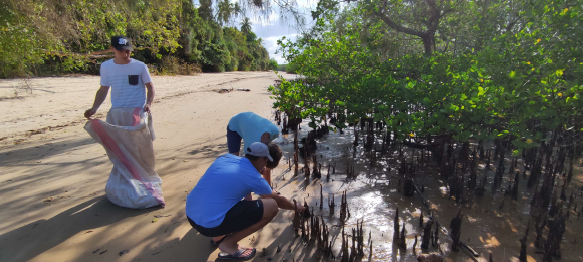
Beach cleaning
We will collect the plastic waste washed up on the beach during a short walk.
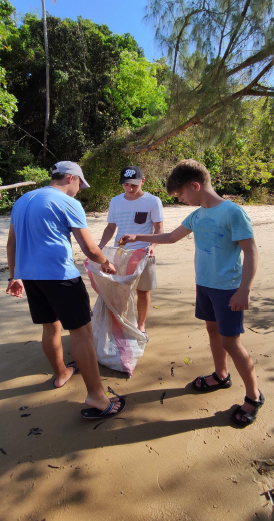
Diving or snorkeling in Chole Bay
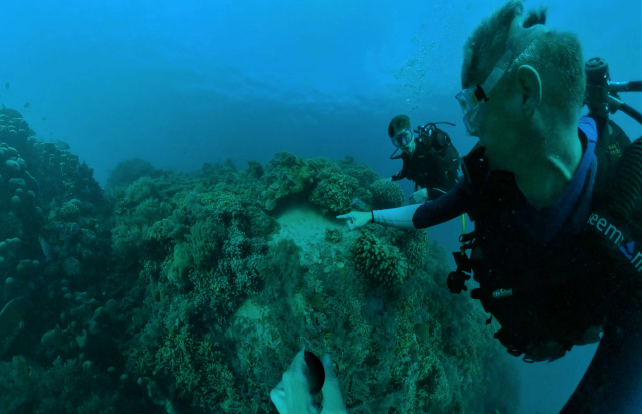
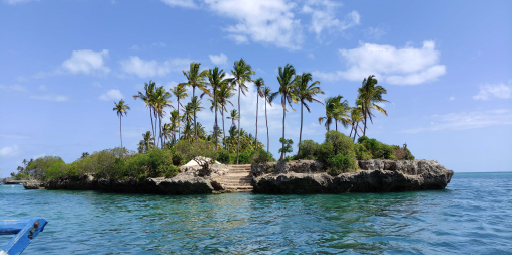
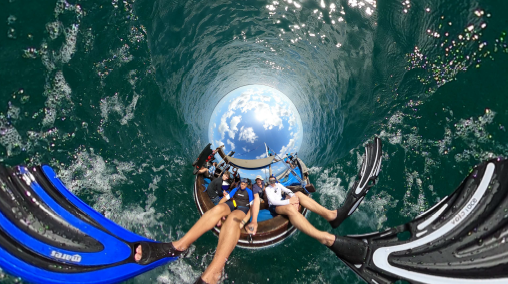
Mangrove planting
The mangrove ecosystems in coastal areas – which we also call “blue carbon” – naturally reduce the amount of carbon dioxide in the atmosphere, thus reducing the greenhouse effect. These coastal systems, although much smaller than our planet’s forests, are much more efficient at sequestering carbon and storing it for millennia.
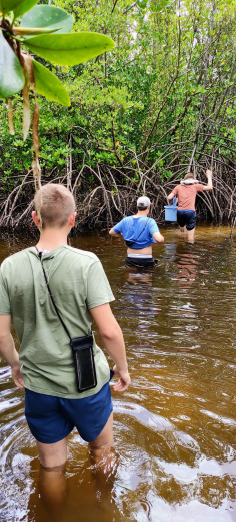
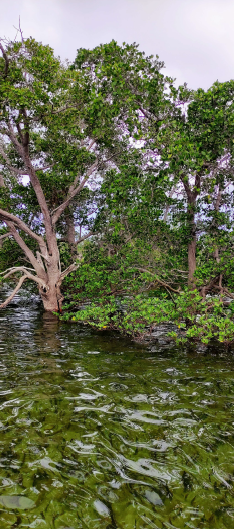
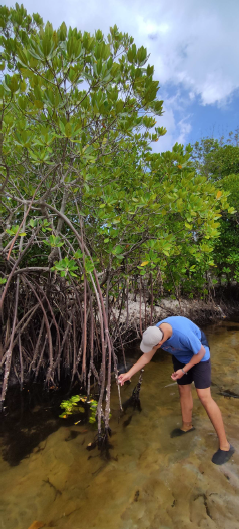
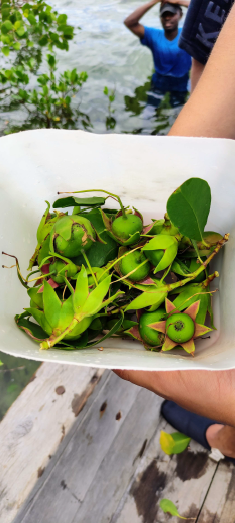
Ras Kisimani beach picnic
On the tiny island, we beach and have lunch until the island disappears from us… 🙂

Chole Island - walking in the village
The island of Chole used to be a prison island, and you can visit the remaining parts of the island, which are just a few minutes’ walk from our accommodation.
We can learn from a local woman how she makes rope from coconut fiber, which we use for the coral nursery. We get to know the local residents.
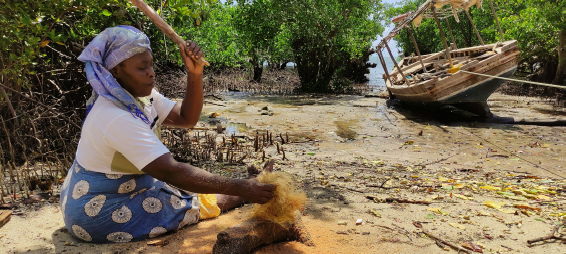
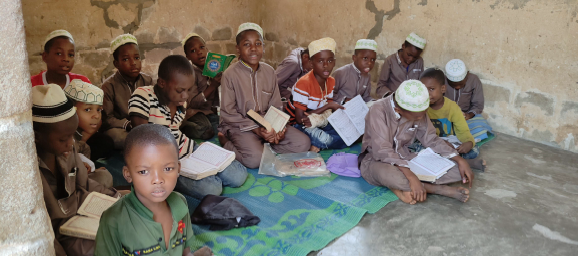
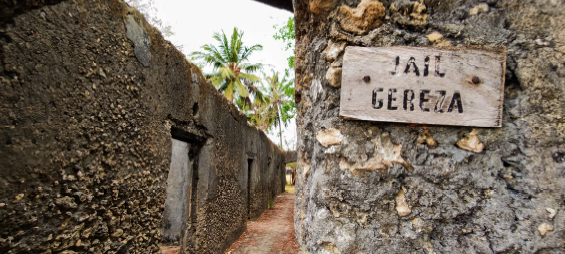
Let's cook local food together! - authentic cooking classes with local chefs
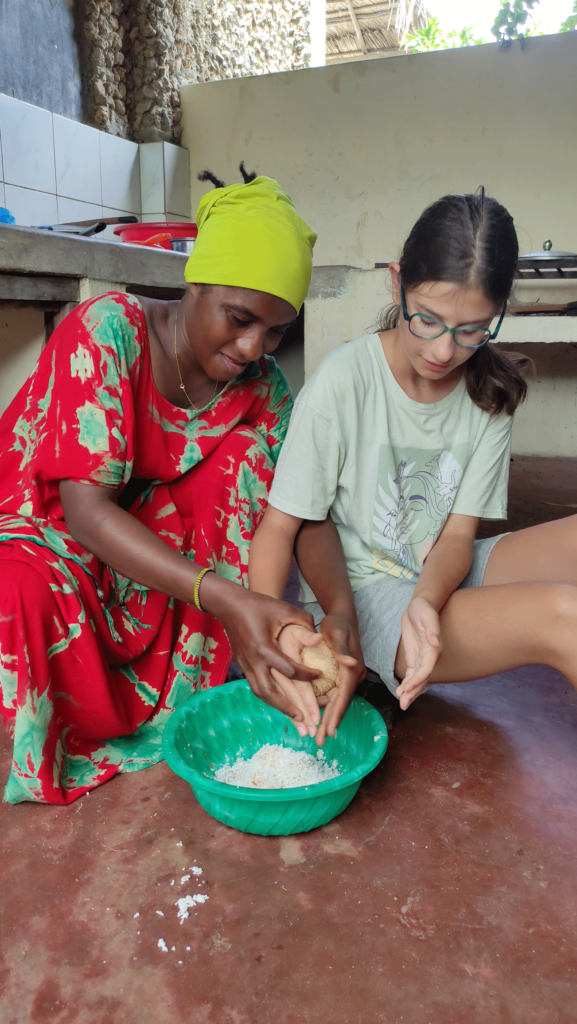
You will have the opportunity to get a glimpse into the life of the local villagers, we will weave a rope from coconut fibre and string corals on it. The women will show you how to prepare Tanzanian food.
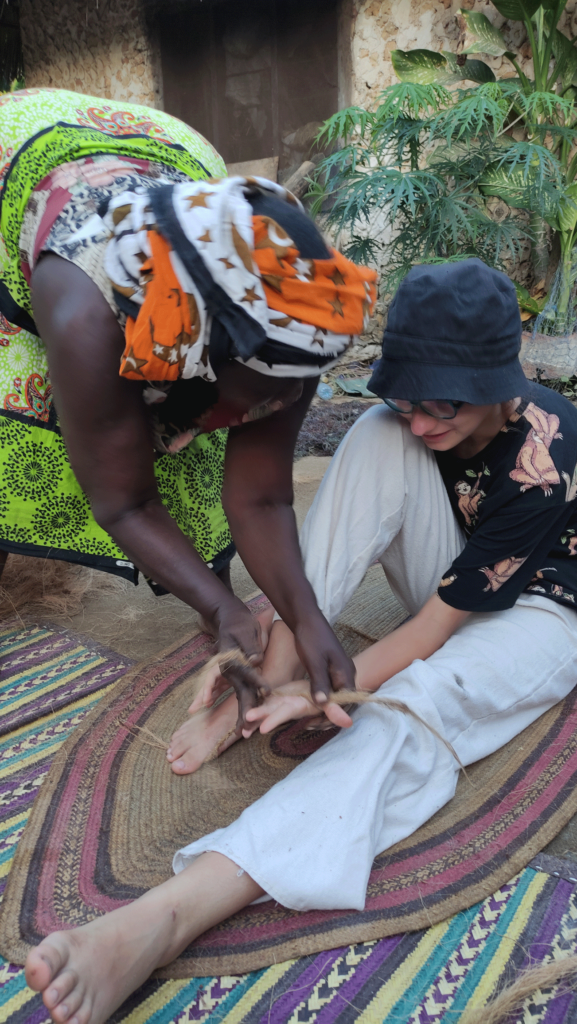
Mange Sand bank / Kitutia Reef
The Mange sandbar is located in the southern part of Chole Bay. It is a beautifully clean patch of white sand, visible only at low tide. This tiny dream spot is surrounded by stunning tropical reefs teeming with colourful corals and fish.
Kitutia Reef is home to small reef fish, lobsters, shrimps, crabs, sea snails and moray eels. Stingrays can also be seen on the seabed.
A perfect barefoot luxury experience!
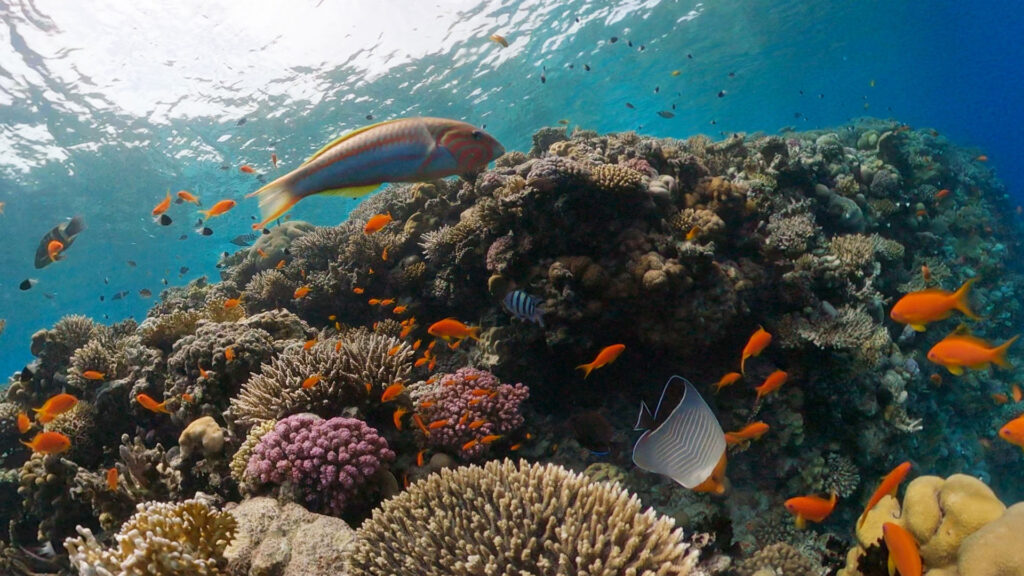
FACULTATIVE programme: 3-day Safari & Kilimanjaro tour
During the tour we will visit the land wonders of Tanzania.
Price: 830 USD which includes 3 days program with accommodation and meals.
Day 1 – Tarangire: Land of the Elephants.
Depart from Arusha city to Tarangire National Park, known for its huge herds of elephants and beautiful baobab trees.
After registration at the park entrance, the safari begins. You will have the opportunity to admire a wide variety of wildlife, from small animals to large predators, as well as admire the stunning scenery of the park.
Before continuing the tour, we stop for lunch at a picnic spot. Around 16:30 we leave the park and head to our accommodation, which is located at Mto wa Mbu near Lake Manyara, just 1 hour from the national park.
After rest and dinner we spend the night here.
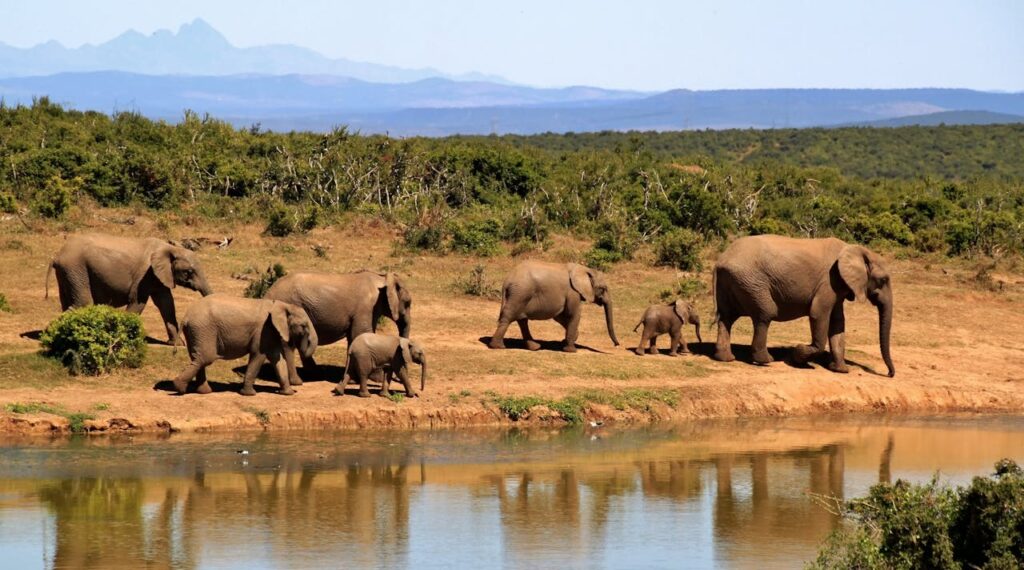
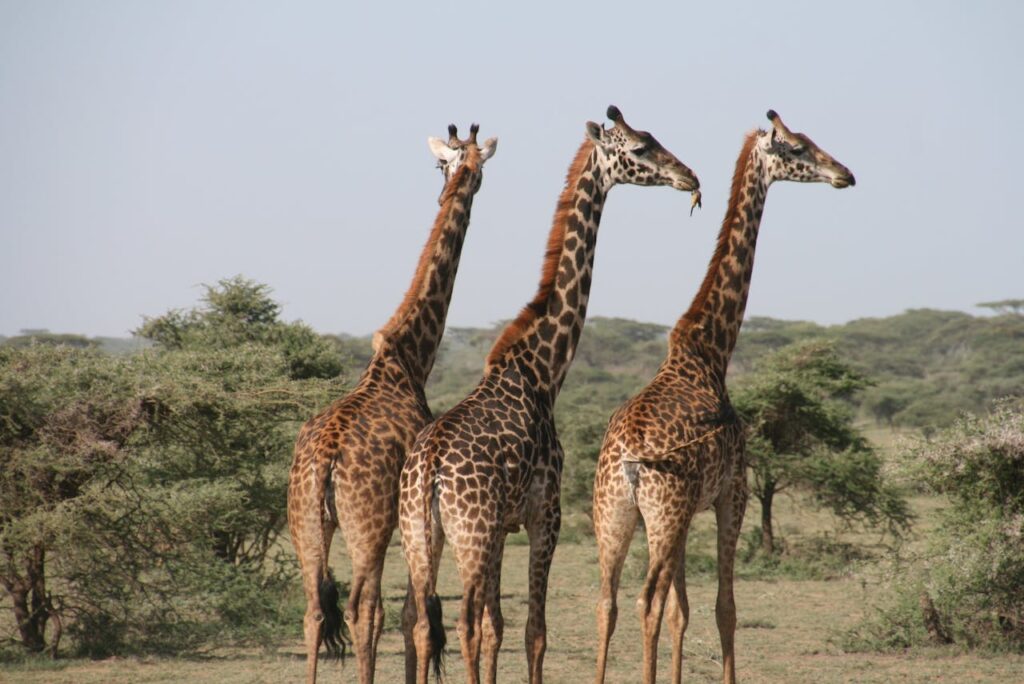
Day 2 – Exploring wildlife and Maasai culture.
Location of the Ngorongoro Crater. Early morning departure to the Ngorongoro Crater, a UNESCO World Heritage Site and one of the largest continuous calderas in the world. The crater is home to a wide variety of wildlife, including the rare black rhino, lions, leopards, elephants, buffalo and many more.
You will also have the opportunity to witness the coexistence of Maasai and wildlife in the crater.
Breakfast will be enjoyed beside a pond with hippos in an atmospheric bush.
The rest of the morning will be spent wildlife watching.
Afterwards, we will have a lunch break and continue our journey to Arusha.
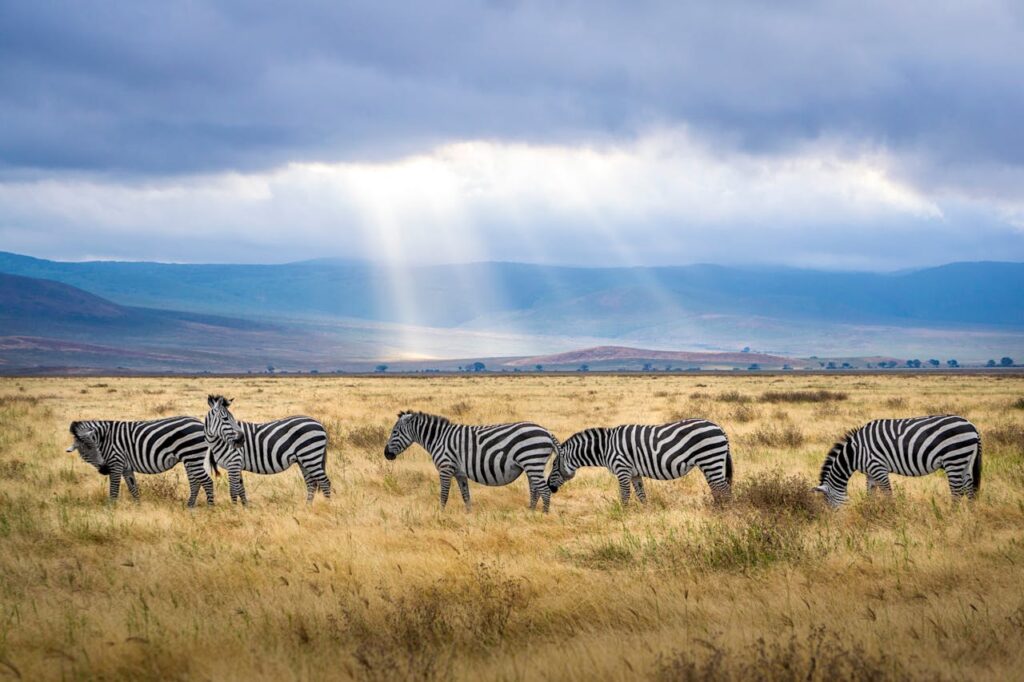

Day 2 – Exploring wildlife and Maasai culture.
Location of the Ngorongoro Crater. Early morning departure to the Ngorongoro Crater, a UNESCO World Heritage Site and one of the largest continuous calderas in the world. The crater is home to a wide variety of wildlife, including the rare black rhino, lions, leopards, elephants, buffalo and many more.
You will also have the opportunity to witness the coexistence of Maasai and wildlife in the crater.
Breakfast will be enjoyed beside a pond with hippos in an atmospheric bush.
The rest of the morning will be spent wildlife watching.
Afterwards, we will have a lunch break and continue our journey to Arusha.
Day 3 – Conquering Kilimanjaro
Departure from the hotel at 7:30 am. From there we will drive to the Kilimanjaro gate, which will take about an hour. After arriving at the gate, which is 1860m above sea level, the trek to Mandara hut begins. As we walk through the rainforest to the Mandara camp, we will have the opportunity to see black and white colobus monkeys, blue monkeys and different species of birds. A local guide will introduce us to the diverse species of plants and animals we will see.
You will also meet climbers descending from the summit. After a 3-4 hour trek, we will reach Mandara hut (2700 m) for a well-deserved rest and lunch.
Afterwards, a short hike (15 min walk) will take us to Maundi Mountain.
From here you have a wonderful view of northern Tanzania and Kenya. We will then return to Marangu gate (2-3 hours walk) from where we will drive to the airport.
Elevation: between 1860 m and 2700 m. Distance: 8 km
Hiking time: 3-4 hours uphill / 2-3 hours downhill.
